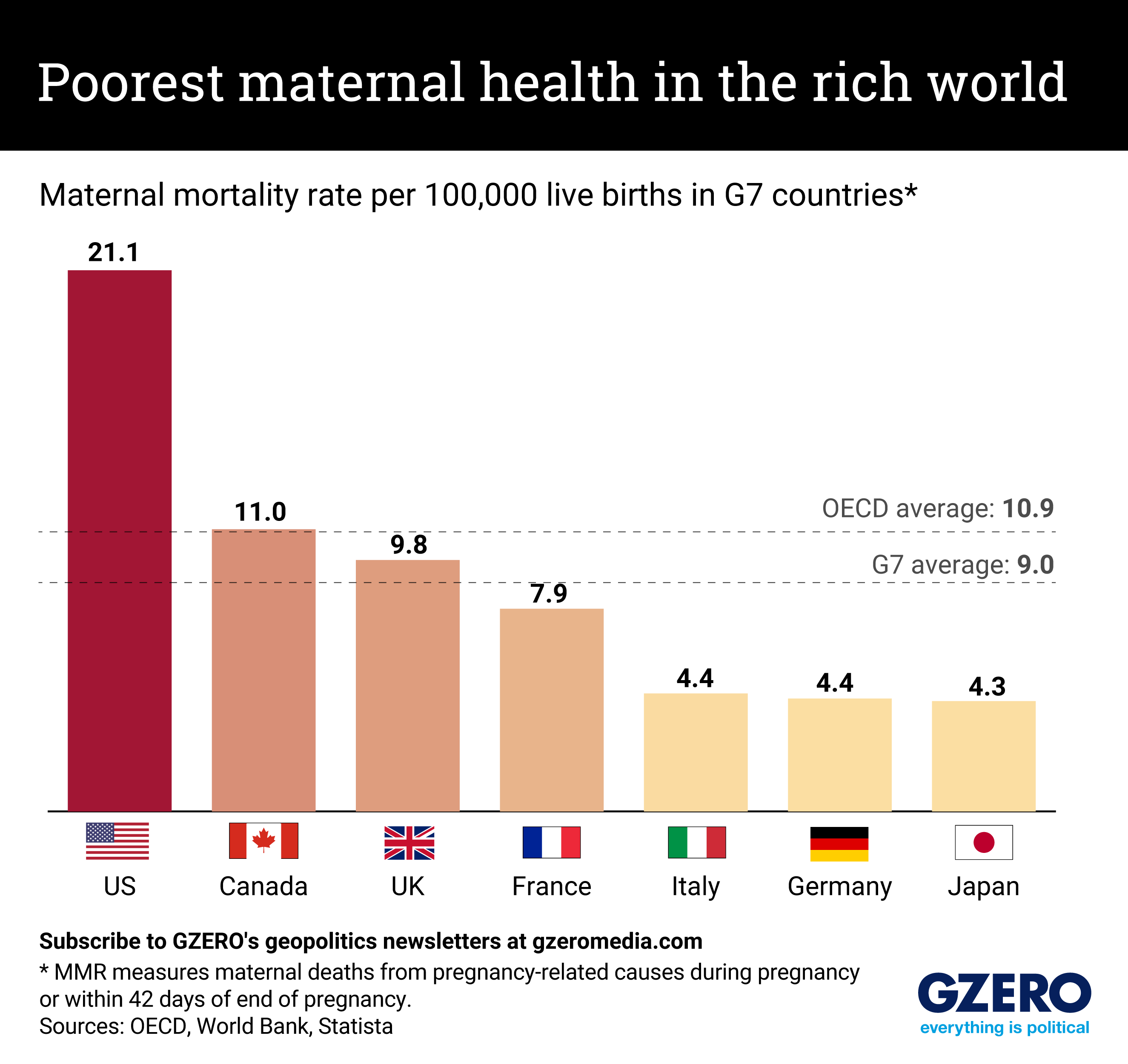October 24, 2024
A woman in the US is nearly twice as likely to die from pregnancy-related causes as a woman in Canada. Compared to Japan, Germany, or Italy, the rate is nearly five times higher.
The United States, in fact, has the worst maternal mortality rate of any high-income country in the world. On average in the G7 group of wealthy democracies, nine pregnant women out of every 100,000 will die as a result of pregnancy or childbirth. In the US, it’s more than 21.
Experts point to a range of factors. One is a lack of adequate care during and after pregnancy, including from midwives or doulas, two professions virtually unknown in the US that have been shown to improve maternal health outcomes elsewhere. According to a recent study on America’s maternal health crisis by the Commonwealth Fund, a philanthropy that supports independent health care research, there are just four midwives per 1,000 live births in the US. In Sweden, where maternal mortality is virtually unknown, there are 80.
The US also stands out for its lack of mandatory paid maternity leave, which is shown to support maternal health by helping women manage the stresses of new parenthood.
Lastly, there are pronounced racial disparities in the US: Maternal death rates among Black women are 2.5 times as high as those for white women, and four times higher than Asian Americans. Higher mortality rates for Black women persist even when corrected for educational level, a loose proxy for income.
Here is a look at how maternal mortality rates compare across the G7 countries, with a comparison also to the average in the OECD, a wider grouping of higher-income countries.
More For You
People in support of former South Korean President Yoon Suk Yeol rally near Seoul Central District Court in Seoul on Feb. 19, 2026. The court sentenced him to life imprisonment the same day for leading an insurrection with his short-lived declaration of martial law in December 2024.
Kyodo
65: The age of former South Korean President Yoon Suk Yeol, who was sentenced to life in prison on Thursday after being found guilty of plotting an insurrection when he declared martial law in 2024.
Most Popular
In an era when geopolitics can feel overwhelming and remote, sometimes the best messengers are made of felt and foam.
Hungarian Prime Minister Viktor Orban holds an international press conference in Budapest, Hungary, January 5, 2026.
REUTERS/Bernadett Szabo/File Photo
The Hungarian election is off to the races, and nationalist Prime Minister Viktor Orbán is facing his most serious challenger in 16 years.
How people in G7 and BRICS countries think their policies will effect future generations.
Eileen Zhang
Does skepticism rule the day in politics? Public opinion data collected as part of the Munich Security Conference’s annual report found that large shares of respondents in G7 and several BRICS countries believed their governments’ policies would leave future generations worse off.
© 2025 GZERO Media. All Rights Reserved | A Eurasia Group media company.
